detail profile leonard cohen
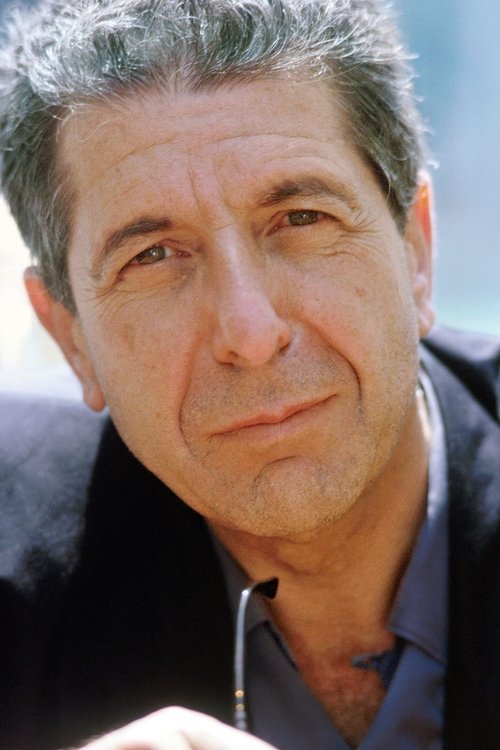
Riwayat Hidup
Leonard Norman Cohen, CC GOQ (September 21, 1934 – November 7, 2016) was a Canadian singer, songwriter, poet, novelist, and painter.
His work mostly explored religion, politics, isolation, sexuality, and personal relationships.
[2] Cohen was inducted into both the Canadian Music Hall of Fame and the Canadian Songwriters Hall of Fame as well as the Rock and Roll Hall of Fame.
He was a Companion of the Order of Canada, the nation's highest civilian honor.
In 2011, Cohen received one of the Prince of Asturias Awards for literature and the ninth Glenn Gould Prize.
Cohen pursued a career as a poet and novelist during the 1950s and early 1960s, and did not launch a music career until 1967, at the age of 33.
His first album, Songs of Leonard Cohen (1967), was followed by three more albums of folk music: Songs from a Room (1969), Songs of Love and Hate (1971) and New Skin for the Old Ceremony (1974).
His 1977 record Death of a Ladies' Man was co-written and produced by Phil Spector, which was a move away from Cohen's previous minimalist sound.
In 1979 Cohen returned with the more traditional Recent Songs, which blended his acoustic style with jazz and Oriental and Mediterranean influences.
"Hallelujah" was first released on Cohen's studio album Various Positions in 1984.
I'm Your Man in 1988 marked Cohen's turn to synthesized productions and remains his most popular album.
In 1992 Cohen released its follow-up, The Future, which had dark lyrics and references to political and social unrest.
Cohen returned to music in 2001 with the release of Ten New Songs, which was a major hit in Canada and Europe.
His eleventh album, Dear Heather, followed in 2004.
After a successful string of tours between 2008 and 2010, Cohen released three albums in the final four years of his life: Old Ideas (2012), Popular Problems (2014) and You Want It Darker (2016), the last of which was released three weeks before his death.
Description above from the Wikipedia article Leonard Cohen, licensed under CC-BY-SA, full list of contributors on Wikipedia
Info Pribadi
Peran Yang Di Mainkan Leonard Cohen
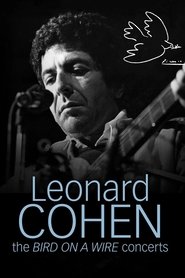 Yet more archive film has been...
Yet more archive film has been...Leonard Cohen: The Bird on a Wire Concerts 2024
Yet more archive film has been found from the famous 1972 tour, which formed the basis of the best-selling 2010 DVD Bird on a Wire. Concert material from the shows in Stockholm, Paris and the Albert Hall, with Cohen at the height of his powers performing Marianne, Susanne, Joan of Arc, The Story of Isaac, The Dealer and many other songs, has now been edited together by Tony Palmer, who shot the original material. This is interspersed with more backstage film of the band on tour, and even some fresh interviews with Cohen himself, together with some previously unreleased sound recordings of his early masterpieces.
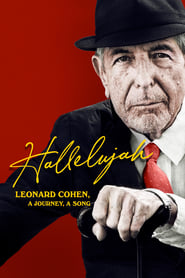 This featurelength documentary explores the life...
This featurelength documentary explores the life...Hallelujah: Leonard Cohen, a Journey, a Song 2022
This feature-length documentary explores the life of singer-songwriter Leonard Cohen as seen through the prism of his internationally renowned hymn, Hallelujah.
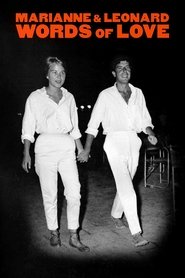 A story of enduring love between...
A story of enduring love between...Marianne & Leonard: Words of Love 2019
A story of enduring love between Leonard Cohen and his Norwegian muse, Marianne Ihlen. The film follows their relationship from their early days in Greece, a time of "free love" and open marriage, to how their love evolved when Leonard became a successful musician.
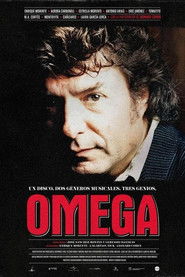 Documentary about the revolutionary flamencorock album...
Documentary about the revolutionary flamencorock album...Omega 2016
Documentary about the revolutionary flamenco-rock album "Omega", composed by maestro Enrique Morente and the Granada group Lagartija Nick in 1996. A groundbreaking album with great impact on the national and international music scene in which Morente adapted songs by the singer-songwriter Leonard Cohen and he put music to poems by Federico García-Lorca.
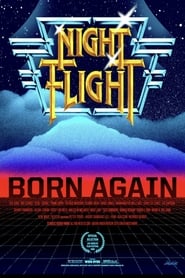 Documentary tribute to what VH1 called...
Documentary tribute to what VH1 called...Night Flight: Born Again 2016
Documentary tribute to what VH1 called “the single greatest rock omnibus program ever aired” and Brooklyn Vegan named “the most consistently weird and awesome thing on cable television in the ’80s.” This ‘Best Of’ episode features some of the most memorable moments of Night Flight's near-decade long run including restored interviews and segments from Kate Bush, New Wave Theatre, David Lynch, Prince, Wendy O Williams, Divine, Billy Idol, Johnny Rotten, and much more Night Flight treasures from the archive.
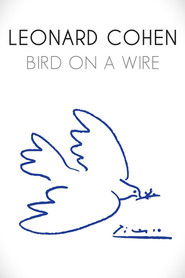 Celebrated filmmaker Tony Palmer follows Leonard...
Celebrated filmmaker Tony Palmer follows Leonard...Leonard Cohen: Bird on a Wire 2010
Celebrated filmmaker Tony Palmer follows Leonard Cohen on his 1972 European tour. The film, after extensive re-editing from its initial version, opened in London in 1974. It was shown on German television, but it disappeared for decades and was considered a lost film. Its original version, restored by the director, was released on DVD in 2010 and had its first theatrical release in 2017.
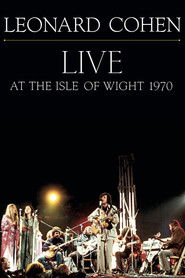 Forty summers ago on a windswept...
Forty summers ago on a windswept...Leonard Cohen: Live at the Isle of Wight 1970 2009
Forty summers ago on a windswept island just off England's southern coastline, a young Canadian folksinger-songwriter-poet-novelist named Leonard Cohen delivered the performance of a lifetime.
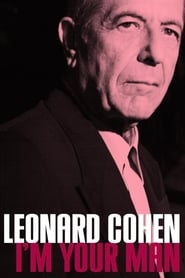 Poet singer songwriter and ladies man...
Poet singer songwriter and ladies man...Leonard Cohen: I'm Your Man 2006
Poet, singer / songwriter and ladies man Leonard Cohen is interviewed in his home about his life and times. The interview is interspersed with archive photos and exuberant praise and live perfomances from an eclectic mix of musicians, including: Jarvis Cocker, Rufus & Martha Wainwright, Teddy Thompson, ANOHNI, The Handsome Family and U2's Bono and The Edge.
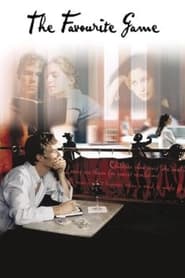 As a kid Leo thought he...
As a kid Leo thought he...The Favourite Game 2003
As a kid, Leo thought he possessed, like a magician, the secret power to make things happen. As a young man, he certainly knows how to make things happen with women. But as his best friend Krantz would say to him, "Why do you always ask questions you already know answers to?" Leo believes firmly in what he invents from one day to the next. Images, impressions, stories fill his head. That's just how he is: life, for Leo, is just a game. Behind this childlike attitude, hides the very essence of his own life's quest.
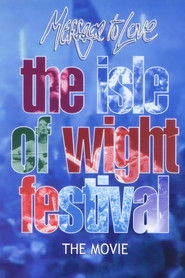 In August 1970 600000 fans flocked to the...
In August 1970 600000 fans flocked to the...Message to Love - The Isle of Wight Festival 1996
In August 1970, 600,000 fans flocked to the Isle of Wight to witness the third and final festival to be held on the island. Besides the music, they also got a look at the greed, cynicism and corruption that would plague the music industry for years to come. They also witnessed the final, drugged out performance of Jimi Hendrix in England just two weeks before he would meet a tragic death. When it all was over, the fans view of rock and roll was never the same.
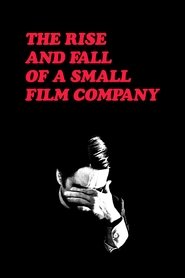 Director Gaspard Bazin is working on...
Director Gaspard Bazin is working on...Rise and Fall of a Small Film Company 1986
Director Gaspard Bazin is working on a new feature film. For now, he's still looking at the fundraising and casting stage of the process. He calls upon Jean Almereyda, a once-fashionable producer who is now going through a bad patch, finding it increasingly difficult to raise the capital he needs for his ventures. His wife Eurydice dreams of being a movie star. A perverse game between the two men ensues, with Almereyda wanting to please his wife, but reluctant to demand a role for Eurydice because of Bazin's reputation as an incorrigible seducer.
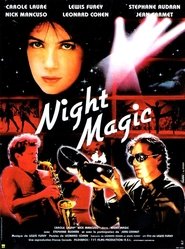 Night Magic a musical fantasy is...
Night Magic a musical fantasy is...Night Magic 1985
Night Magic, a musical fantasy, is set on earth but it is also about the heavens. At the centre of it all is Michael, a music hall artist, who finds Judy, an angel that epitomizes the woman of his dreams at the System Theatre where he is about to open his new show. For Michael it is just another show along the road but once inside something happens. The night is full of possibilities- full of love and romance, jealousy and infidelity, music and dance, even good and evil. Most of all it is full of magic.
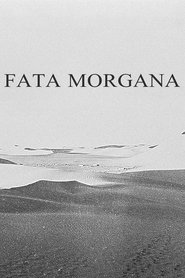 Shot under extreme conditions and inspired...
Shot under extreme conditions and inspired...Fata Morgana 1971
Shot under extreme conditions and inspired by Mayan creation theory, the film contemplates the illusion of reality and the possibility of capturing for the camera something which is not there. It is about the mirages of nature—and the nature of mirage.
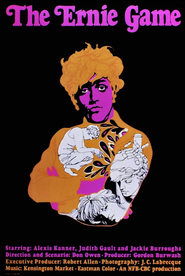 This fictional feature follows a twentysomething...
This fictional feature follows a twentysomething...The Ernie Game 1968
This fictional feature follows a twenty-something man who is struggling to define his position in the world in early adulthood. He has left their parents' home but still has not made an home of his own. Our protagonist’s alienation is palpable; for him life is a game, not because he chooses to make it so, but because he is unable to make anything more of it. But for those who befriend him and eventually turn him loose again, his game is not enough.
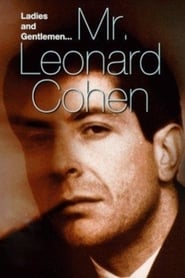 A 1964 documentary portrait of Cohen in...
A 1964 documentary portrait of Cohen in...Ladies and Gentlemen, Mr. Leonard Cohen 1966
A 1964 documentary portrait of Cohen in his pre-musician days as a poet and stand-up comedian.
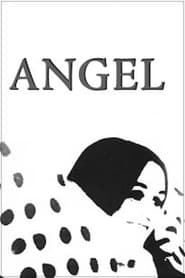 In this short film a young...
In this short film a young...Angel 1966
In this short film, a young man, a girl and a dog attempt to fly with wings more symbolic than practical.

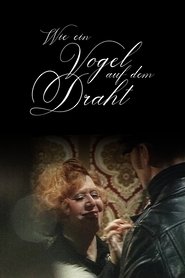 A pseudo variety show about the...
A pseudo variety show about the...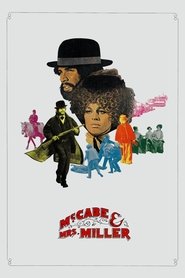 A gambler and a prostitute become...
A gambler and a prostitute become...